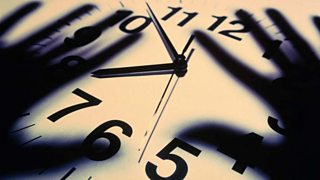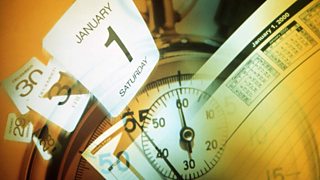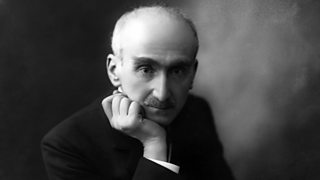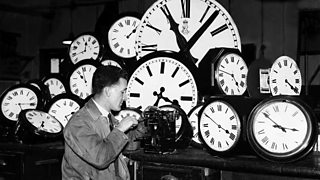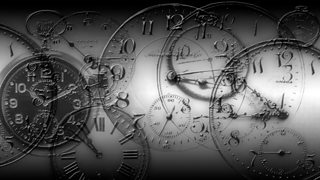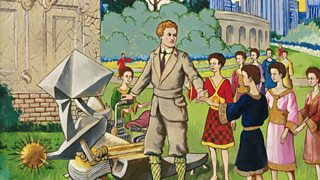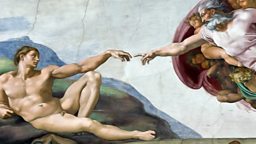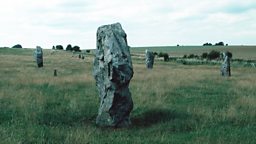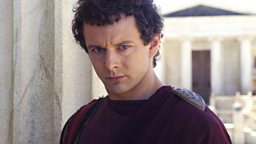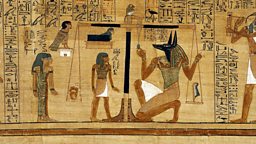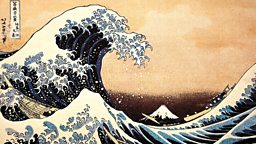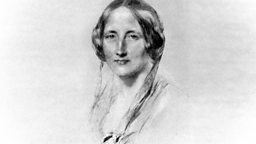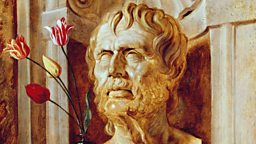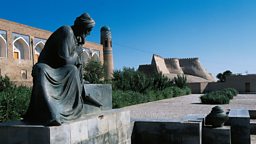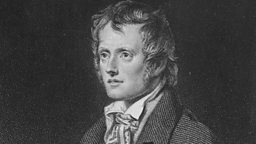Seven things that might surprise you about time
We live in a world where an atomic clock can keep to time and only lose a second every 15 million years – we arrived at this incredible feat of engineering ingenuity from simply noticing the movements of the sun and the moon and the stars.
To mark the 900th episode of In Our Time, we’ve compiled a list of some of the many, many fascinating facts that the programmes have uncovered about our understanding of time.
1. We have the Babylonians to thank for helping us to measure time
The way we divide time owes much to the ancient Babylonian civilisation of Mesopotamia (1895–539 BCE), described as “the great mathematicians of antiquity” by Kristen Lippincott, former Director of the Royal Observatory, Greenwich. Kristen explains that the Babylonians used the "Sexagesimal" system – meaning based on the number 60 – “because it could be divided by the widest number of other numbers without having any remainders.” Pre-dating fractions, this system was very convenient and one that we still use today.

2. Calendars seem logical enough but were once steeped in superstition
The Babylonians gave us minutes and seconds as well as weeks, years and days. However, when it came to months, there were – in their culture and others – a number of days left over that weren’t counted within a 12-month period and got lumped into an "unlucky" 13th month.
There were actually quite a few days that were considered unlucky by the Babylonians, including the seventh day, the 14th day, the 21st day and the 28th day, and there were various restrictions on what you could do on those days – so they were essentially bank holidays! You can find out more in In Our Time's episode on The Calendar.
3. Time would exist without clocks
Clocks are all very well, but as Jim Al-Khalili, Professor of Theoretical Physics and Life Scientific host, points out: “A lot of people confuse time with clocks.” Clocks are “just our human invention” and we could have divided time into any other units.
4. Henri Bergson made a distinction between duration and time
French philosopher Henri Bergson (1859-1941) argued that our experience of time as a duration differs from the scientific measurement of time – spatial time. When we listen to music, the notes permeate one another, each one indistinguishable from the other. We listen to music as a whole, not as a succession of isolated notes, and so it is with our experience of time. Debates among philosophers and scientists about the nature of time were quite common in the early 20th century, and contemporaries such as Albert Einstein and Bertrand Russell were among those who took issue with Bergson.

5. We are all clocks
Circadian Rhythms – commonly known as the body clock – are thought to be found in any life-form that derives energy from sunlight. The main "body clock" lives in the hypothalamus in the brain, and sends regulating signals through the body at different times of the day, allowing the anticipation of night and day and winter and summer.
Experiments in this area have shown an interesting anomaly – mimosa leaves. They open and close in the dark, following their own circadian rhythms rather than the sun. However, if we were left in the dark, our body clock would become out of step with the 24-hour clock because there are sensors in our eyes that detect light and send signals to the hypothalamus to keep our body clock in sync.
-
![]()
Fabulous flights: 13 amazing facts about bird migration
How do birds migrate 1500km back to the same place?
6. Birds have a type of internal clock to prepare them for travel
Bird Migration provides us with a fascinating example of body clock activity. Birds prepare for migration well in advance of their journey by eating more and gaining weight. Their liver and reproductive organs often shrink, and their cell membranes change to enable oxygen and fat to be used more efficiently. Some birds even renew their flight feathers, which can take up to a month.
-
![]()
Understanding your body clock
Circadian rhythms are are found throughout the living world. How much do you know about yours?
7. The true nature of time
Whether we are looking at a clock to track our day or experiencing our inner, instinctual, body clock, the passing of time is our greatest mystery. Isaac Newton believed time was absolute and independent from the universe, and space was the stage on which everything happened. By contrast, Einstein thought time was woven into the fabric of everything in the universe and inseparable from space. With quantum theory continuing to shape our ideas of the world around us, understanding time is still very much a work in progress. You can find out more on In Our Time's episode on The Physics of Time.
In Our Time episodes on time
-
![]()
Time
Melvyn Bragg examines the history of mankind’s attempt to understand the nature of time. Does it exist independently of our perception of it, or is it merely a figment of our imagination?
-
![]()
The Calendar
Melvyn Bragg discusses the Roman, Babylonian, Egyptian and Jewish origins of our Gregorian calendar. Who named the concepts of days, weeks and months, and through them shaped our lives so absolutely?
-
![]()
Bergson and Time
Melvyn Bragg and guests discuss the ideas of Henri Bergson on how our experience of time as a duration differs from the scientific measurement of time, and why that matters.
-
![]()
The Measurement of Time
Melvyn Bragg and his guests discuss the measurement of time and the various methods used for doing so over millennia of human history.
-
![]()
The Physics of Time
Melvyn Bragg and guests discuss the physics of time – what is it and does it even exist?
-
![]()
Ageing the Earth
Melvyn Bragg discusses the Age of the Earth, and how to make sense of four and half billions years of time.
-
![]()
The Time Machine
Melvyn Bragg and guests discuss the ideas and anxieties in late Victorian London, explored by HG Wells in his story of time travel, evolution and a planet unfit for humans.
-
![]()
Mrs Dalloway
Melvyn Bragg and his guests discuss Virginia Woolf's novel Mrs Dalloway, which charts a single day in the life of Clarissa Dalloway, a prosperous member of London society, as she prepares to throw a party.


